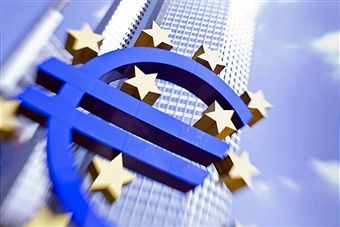 The Eurozone’s political crisis is deepening. Further to the news that individual
member states were seeking their own bilateral deals with Greece to insure their taxpayers’
money from default, the FT reports that disagreements are emerging over how these deals should
be conducted. Holland objects that Finland’s accord with Athens relies on Greece using EU bailout funds as collateral. “The Netherlands is no supporter of this
proposal,” Jan Kees de Jager, the Dutch finance minister, said. “It is not compatible with the principle of equal treatment of all euro countries.”
The Eurozone’s political crisis is deepening. Further to the news that individual
member states were seeking their own bilateral deals with Greece to insure their taxpayers’
money from default, the FT reports that disagreements are emerging over how these deals should
be conducted. Holland objects that Finland’s accord with Athens relies on Greece using EU bailout funds as collateral. “The Netherlands is no supporter of this
proposal,” Jan Kees de Jager, the Dutch finance minister, said. “It is not compatible with the principle of equal treatment of all euro countries.”
Moody’s, the credit rating agency, has said that this affair “confirms that Europe is conflicted over the very decision to provide financial support to its members, not just the amount of support.” The Dutch, who favour bilateral terms with Greece in principle, have indicated that they may veto the second bailout, which is yet to be ratified by member states. That eventuality is likely to spook the already nervous markets.
This story reinforces the analysis that the Eurozone crisis is as much the effect of political weakness as it is economic frailty. Member states would not be seeking bilateral deals with Greece if they had confidence in the debt package and Greece’s ability to repay. Confidence might be fostered were there the structures to bind the Eurozone closer together — mechanisms that forced states, among other things, to budget responsibly. Instead, there is just a political morass. Each day, it seems, brings news of greater incoherence and disunity as national governments look nervously over one shoulder at their disgruntled electorates and at jittery markets over the other.
A senior diplomat recently told me that the markets are clear that they will only be satisfied by closer union. Northern states are not necessarily opposed to integration, but reckon that their electorates will reject what appears to be a debt union funded by their taxes. It might be standard European practice to ignore the People, but thirty years of democratic deficits have dispelled apathy; the Eurocracy wouldn’t get away with it this time, or so the thinking goes. For example, Angela Merkel’s current struggle over the second bailout in the Bundestag arose because many German politicians calculate that the European issue will turn the forthcoming election, a point made by Anthony Browne in a recent cover piece for the Spectator.
Unable to forge an obviously closer union in this political climate, Merkel can only offer the markets a steady drip of half-measures. (The latest seems to be “greater commitment” from the rest of the EU.) As Moody’s have intimated, it may not be enough.






Comments